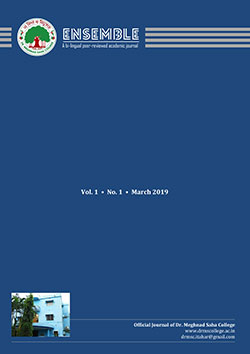COVID-19 AND ITS IMPACT ON THE RIGHTS OF INDIGENOUS COMMUNITIES
Abstract
COVID-19 is an infectious disease caused by the most recently discovered coronavirus. This new virus and disease were unknown before its outbreak in Wuhan, China, 2019.COVID-19 was declared a pandemic by the World Health Organisation (hereafter referred to as WHO).The virus that causes COVID-19 infects people of all ages.According to the report of the WHO,the total cases reported were62, 573, 188; 43,193, 999 recovered,and 1,458,305 deaths(Worldometer,2020).Its impact can be seen on every corner of the world,most prominently on a specific group of the population known as Indigenous Communities. Indigenouscommunities are also known as tribal people,Adivasis, i.e., aboriginal communities;and are a significant part of theworld’s population. They are far from the contemporary trend, economic development and have their own language, religion, cultures, festivals, music, cuisine,etc.Zacharius,T. (2020)mentions that they have lived close to nature, and their way of life is different from than mainstream lifestyle. They mostly depend on agriculture and handicrafts and hold a vast amount of Traditional Knowledge. The Communities are economically and socially backward and live in isolation and self-contained groups. Less development and failure to reach the Indigenous communities have made them facevarious issues during this pandemic situation. The Coronavirus (hereafter referred to as COVID-19) pandemic poses a grave health threat to the Indigenous communities around the world. The absence of proper healthcare, sanitation, other preventive measures significantly increases the danger.This paper describes the impact of COVID-19 on society, especially on the health of Indigenous Communities.
Keywords: Coronavirus, Pandemic, Traditional Knowledge, Tribal People
https://doi.org/10.37948/ensemble-2021-sp1-a015
Views: 2374



